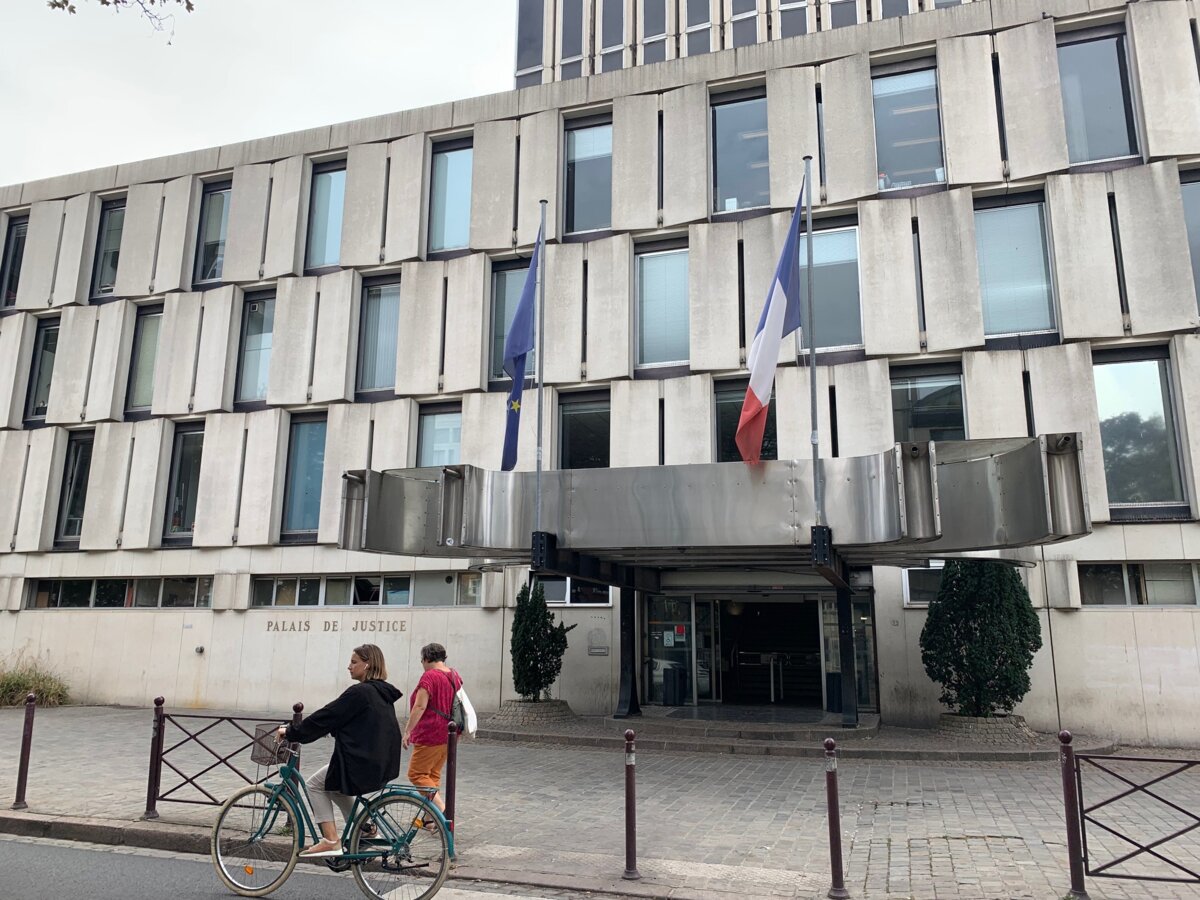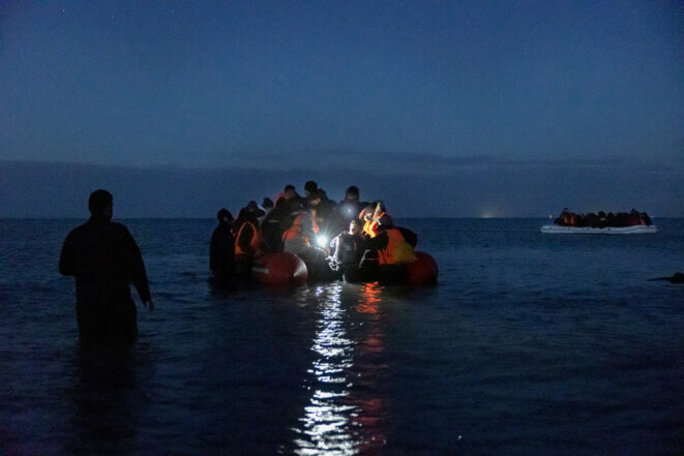On August 19th, Maher F. (last name withheld), a 38-year-old Syrian who holds German nationality, appeared before the central court in Lille, northern France, after he had been caught transporting equipment for a criminal gang smuggling migrants across the Channel to southern England.
Once in court and freed of his handcuffs, he pulled out a paper tissue with which, throughout the trial, he dabbed at his tearful eyes. He was appearing under a fast-track trial system, called “comparution immédiate”, following his arrest two days earlier by customs officers at a motorway layby at Camphin-en-Pévèle, close to the border with Belgium. Their attention had been drawn by the sight of several life jackets in his Opel vehicle, and a search of it revealed a total of 40 jackets, an inflatable dinghy, an outboard motor, jerrycans and three hand-operated water pumps.

Enlargement : Illustration 1

When the haul was detailed in court, the presiding judge, Benoît Blanchy, addressed the accused with an affected air of detachment: “The perfect material for a crossing of migrants towards the United Kingdom, what do you say?” Maher F., speaking through an interpreter, replied: “I only saw the life jackets, I thought the rest was cigarettes.” According to his account, two young Kurds had recruited him in Cologne to drive the Opel to a budget Formule 1 hotel close to the Channel port of Dunkirk, for which he was to be paid 700 euros.
“I did it for the money,” he said, insisting that he did not belong to any kind of criminal network, and adding that he had debts amounting to 5,000 euros owed to “friends” who were apparently impatient to be refunded. To his suggestion that he was unaware of what he was transporting, beyond the life jackets, Judge Blanchy asked: “If you didn’t know what there was in the car, it could have been hundreds of kilos of heroin?” No, came the reply, certainly not heroin.
Maher F. fled war-torn Syria for Europe in 2012, via Iraq and Turkey, eventually arriving in Germany where he was granted asylum, and was later given German nationality. Settled in the country, where he has a stable manual job, he is married and has two small children.
The court in Lille heard that he had no criminal record. Speaking through his interpreter, he insisted that this was the first time he had embarked on such a mission, then repeating in English, as if to emphasise the point, “I swear that’s the first time”.
However, a check of his mobile phone connections had shown that he had previously been present on France’s northern Channel coast, the Côte d’Opale, on July 24th. “On that same date,” said the presiding judge, “forty-five migrants, including fifteen minors, left Grand-Fort-Philippe for England.”
Maher F. said that was a “coincidence”, and that he had been in the region that day as a tourist. Grand-Fort-Philippe is situated on France’s northern Channel coast, between Calais and Dunkirk.

Enlargement : Illustration 2

The panel of judges were clearly unimpressed by his explanation. The court had previously tried and sentenced several Germany-based Syrians and Iraqis for people smuggling on the basis of similar evidence found in their vehicles and mobile phone data, notably in July, in May and last December . The dinghies and equipment they were transporting were for networks who typically charge migrants around 3,000 euros per person for the hazardous crossing on the small boats to Britain.
The route across this narrowest divide of the Channel, between the Côte d’Opal and southern England, around 40 kilometres, is not only in one of the busiest shipping lanes in the world, used by several hundred commercial vessels every day, but is also a stretch of sea that can rapidly become treacherous, and especially in winter.
Following the deaths of 27 England-bound migrants off Calais in November last year, when their inflatable dinghy, which had no rigid underbelly, sank in rough seas, the French authorities have stepped up their efforts to bring people smugglers before the courts, both among the ringleaders of the criminal networks and those in the lower ranks, like Maher F.
In his summing up at the trial, public prosecutor Michaël Bonnet said Maher F. was among those who contributed to exploiting “the distress” of migrants, and who represented “a true scourge” for the local area. He called for Maher F. to be sentenced to 18 months in prison sentence, without remission, and a 10-year ban from entering French territory.
Maher F. wept as his lawyer, Marie Tourneux, attempted to convince the judges that he “was not someone integrated into this network” that was responsible for “the trade in human beings”. She said he was “unknown to the French, Belgian and German police services”, and that her client had been “recruited for a one-shot”. He was otherwise, she argued, a “Mister average who works every day”.
In his own last statement to the court, the defendant promised to remain close to his family and to never again return to France.
He was finally handed an 18-month prison sentence, 12 of them suspended, and ordered to begin his jail term immediately. The equipment he was found with and the car he was driving, were confiscated. The judges also banned him from entering France for ten years once he had served his sentence.
Upon learning that he would be jailed that same day, he asked his lawyer, via the interpreter, how he could inform his wife in Germany of what had happened.
-------------------------
The original French version of this report can be found here.
English version by Graham Tearse


